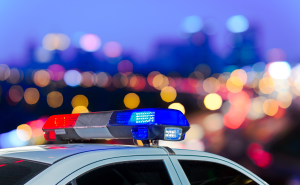Questions and Answers on Firearm Purchaser Licensing

Cassandra Crifasi, PhD, is the co-director of the Johns Hopkins Center for Gun Violence Solutions and an associate professor in the Bloomberg School's Department of Health Policy and Management. In this Q&A, Crifasi answers frequently asked questions about firearm purchaser licensing as new laws are considered in several states across the country including Delaware, Washington, and Virginia, and a law passed by Oregon in 2022 is being litigated. Currently 10 states and the District of Columbia have some form of firearm purchaser licensing in place.
How do firearm purchaser licensing laws work?
Firearm purchaser licensing laws (sometimes referred to as permit-to-purchase) create a more robust system for conducting background checks. There is some variation across states, but these laws generally require a potential purchaser to submit an application to local or state law enforcement. Some states require applicants to take a safety training course. A background check is then conducted, often facilitated by fingerprints, that access local, state, and federal records. Law enforcement has, on average, up to 30 days to complete the background check and determine whether the applicant is eligible for a purchase license. Sellers, both licensed and private, can only sell to someone with a valid firearm purchase license.
How does a state firearm purchaser licensing bill work with the federal background check system?
Firearm purchaser licensing laws complement the federal background check system in at least two ways. First, these laws create a more robust system for processing background checks that are required under federal law when someone wants to purchase a gun from a federally licensed firearm dealer. More time is afforded to complete background checks and law enforcement has access to more records to ensure someone is not legally prohibited from buying a gun. Second, these laws extend those same background check requirements to private sellers.
Currently, under federal law, private individuals are not required to conduct background checks even for people the seller does not know. Firearm purchaser licensing systems put requirements into place that every purchaser has a valid license that must be checked by every seller. This helps ensure people who are prohibited from legally purchasing guns cannot buy them.
How does firearm purchaser licensing help limit gun violence?
Our research shows firearm purchaser licensing laws are associated with many public safety benefits. These laws have been found to impact underground gun markets by reducing the diversion of guns for use in crime. States with these laws in place also have lower rates of firearm mortality—we see lower rates of homicide, including mass shootings, suicide, and shootings by police.
What is a straw purchase and how do firearm purchaser licensing laws help to stop them?
Straw purchasing is when someone who can legally buy a gun purchases one with the intent of giving it to someone else. Straw purchasing is a violation of federal law, but a crucial way prohibited individuals gain access to firearms. Firearm purchaser licensing deters straw purchasing by first requiring prospective purchasers to apply for and obtain a license. This additional layer of process and accountability has been found to reduce the likelihood of people engaging in straw purchasing.
How do these laws prevent diversion of guns to criminals and firearm traffickers?
By requiring prospective purchasers to first obtain a license, these systems deter both impulsive firearm acquisition that could be used to harm self or others and straw purchasing of guns with the intent of diverting them into the underground market. Rather than walking into a gun show or connecting online and meeting up with a private seller to buy guns without a background check, purchasers must have and show a valid license. This requirement helps ensure all purchasers have undergone a background check and increases accountability among both sellers and purchasers.
How does the Supreme Court Bruen ruling affect firearm purchaser licensing bills going forward?
In New York State Rifle & Pistol Association v. Bruen, the Supreme Court found the New York law, which granted licensing officials the ability to deny a concealed carry license to applicants who did not demonstrate a special need for self-defense, unconstitutional. The Court also dramatically changed how courts can rule on Second Amendment cases. Before Bruen, lower courts evaluated gun laws using a combination of historical research and how well-tailored the laws were in achieving an important government interest such as public safety. However, in the Bruen case, the Supreme Court limited the analysis to how closely modern-day law follows our nation’s historical tradition of firearm regulation.
The Bruen decision was focused on two pieces—first, whether the discretionary element of concealed carry licensing was constitutional, and second, what information is relevant in determining whether gun laws are constitutional. To the first piece, very few firearm purchaser licensing laws allow law enforcement unlimited discretion in issuing a license. Most rely exclusively on objective data to potentially prohibit access to a purchaser license, rendering this consideration largely irrelevant. The second piece, however, may have implications for these laws. The Bruen decision directs courts to use text, history, and tradition to find historically analogous laws from the time the 2nd and 14th Amendments were ratified. While courts have not yet reached consensus regarding whether sufficiently analogous historical laws existed, the U.S. has a long tradition of prohibiting access to firearms by dangerous individuals. Firearm purchaser licensing laws are the most robust and effective mechanism to ensure those prohibitions are enforced.
What states already require firearm purchaser licensing?
Connecticut, Hawaii, Illinois, Massachusetts, Maryland, Nebraska, New Jersey, New York, and the District of Columbia all have firearm purchaser licensing laws in place. Michigan and Minnesota require a purchaser license only when buying from a private seller. Oregon passed a firearm purchaser licensing law via ballot initiative in 2022 but the law has been prevented from taking effect as cases are currently making their way through the courts. Some states have repealed their laws in recent years including Missouri, North Carolina, and Iowa.
Is there action on the state level in 2024 on firearm purchaser licensing?
Both Washington State and Delaware are actively considering legislation to adopt firearm purchaser licensing. Virginia is also likely to introduce a bill in the upcoming legislative session.





